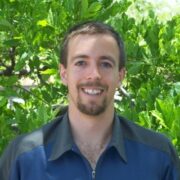
Space Ecology
What fundamental rules govern the self-sustainability of ecosystems for long-term space settlement?
In order to truly become an interplanetary species, with a long-lasting, sustainable future in space, it is critical to uncover the universal rules governing the performance of different types of ecosystems with various features and conditions. We set out to synthesize current models to develop a unifying theoretical framework of ecosystem functioning, allowing us to move outside known case studies and enable predictive design of the initial phase of space settlement and their subsequent evolution.
Key accomplishments
- Launched a Universal Space Ecology course
Team members

Harrison Smith
Earth and Life Science Institute, Tokyo Japan
Geological Sciences

Manfred Laubichler

Michael Barton

Pilar Vergeli





